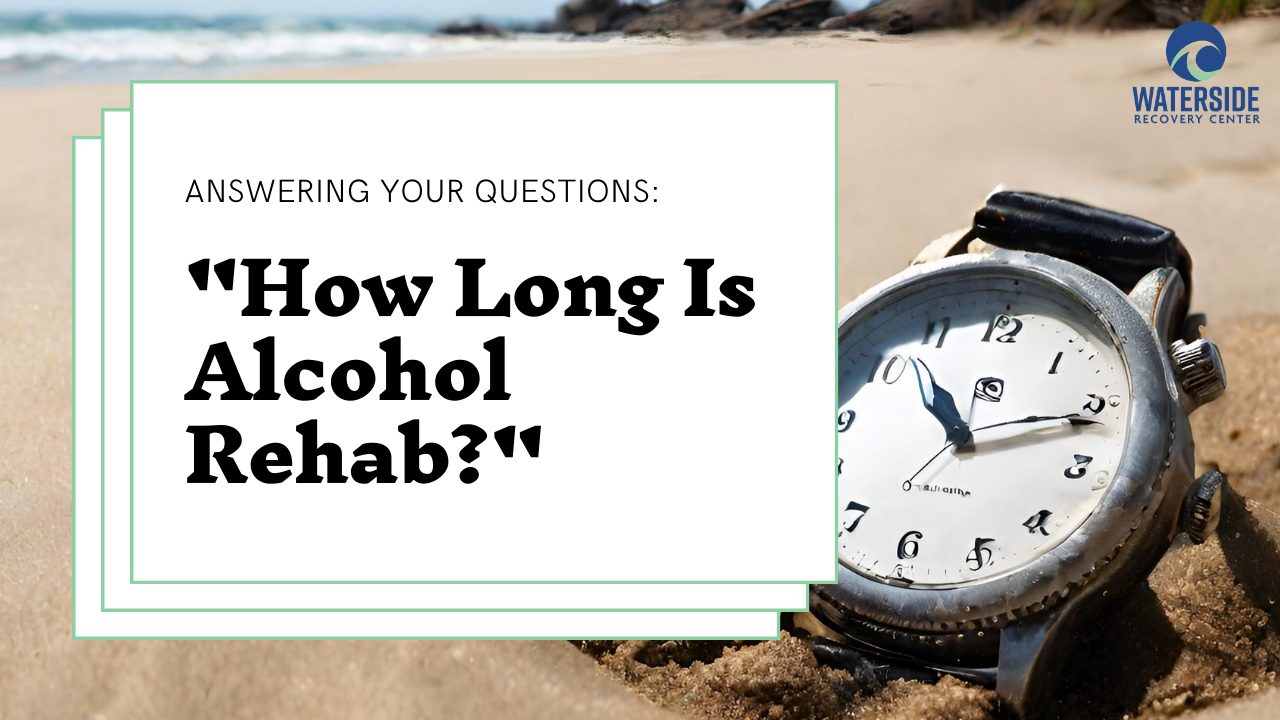The answer is that it could be as short as a few days to as long as a year. In some cases, even longer. People`s experiences with alcohol use disorder differ, and treatment lengths are tailored to individual needs. Therefore, various factors influence the duration, such as professional advice, insurance coverage, and specific circumstances. By examining these aspects, we can draw some general ideas about how long alcohol detox and rehab might take for different individuals.
Things We Will Cover
What Factors Influence the Length of Alcohol Rehab?
First, it is important to know that there is no universal fit for alcohol rehab. Therefore, how long an individual will spend in rehab varies based on several factors. Some of those factors include:
- Coverage from insurance, plan specifications, and financial capability.
- History of previous treatment experience.
- Required level of care.
- Existence of co-occuring disorders. (both substance use and mental health disorders).
- Overall physical health.
- The extent of the condition and the duration and the duration of alcohol misuse.
- Motivation of the individual seeking alcohol rehab.
What Span of Alcohol Rehab is Covered by Insurance?
For many, it’s a surprise that health care plans often cover alcohol rehab with minimal or no out-of-pocket expenses. However, the duration of alcohol rehab, at times, hinges on the extent and duration of coverage provided. Thankfully, federal mandates like the Affordable Care Act (ACA) and the Mental Health Parity and Addiction Equity Act (MHPAEA) make it where most insurance companies are obligated to offer some level of coverage for substance use disorder treatment. However, the actual coverage depends on individual insurance providers, and the plans they offer vary in terms of coverage levels.
Understanding your insurance plan is crucial, because different plans allocate coverage differently for various stages of alcohol rehab. Due to the possibility of life-threatening withdrawal, a safe medical detox is usually covered. On the other hand, some policies may not cover detox for drugs like heroin due to the lack of life-threatening withdrawal.
For medically-safe detox, health insurance will usually cover somewhere between 3 and 10 days. Furthermore, your insurance provider could cover additional aftercare. After detox, your plan could cover inpatient treatment. It can differ from person to person, but a typical inpatient treatment stay could last between 14 to 60 days. Then, you could look into the possibility of coverage for a partial hospitalization (day treatment), or outpatient treatment program.
Furthermore, there can still be a portion of treatment that your insurance will not pay for. Before starting, research your coverage to figure out your expenses. It could be co-pays, deductibles, or additional costs associated with treatment. To discover which parts of your treatment are covered, reach out to our insurance verification team. They are standing by at (866)671-8620.
How Long is Alcohol Detox?
Inpatient detox is often recommended for alcohol. Specifically in the first 24 hours, as alcohol withdrawal can be unpredictable and sometimes deadly.
Many factors influence how severe and long the withdrawal might be. Therefore, those contributing factors also play a role in how long a stay in detox will be. Those factors include:
- The last time the patient drank alcohol.
- If the patient has experienced severe alcohol withdrawal in the past.
- The existence of any additional health issues - related or unrelated to alcohol use.
- If the patient has been using multiple substances simultaneously while also drinking alcohol.
- The frequency, duration and amounts of alcohol being used.
- The patients desires and plan.
How long a patient will stay in detox for alcohol is dependent on numerous factors. The average time spent in detox for alcohol is 3 to 10 days, but it could be shorter or longer depending on the patient and their insurance coverage.
How Long is Inpatient Alcohol Rehab?
Inpatient alcohol rehab can come in many different shapes and sizes. With that said, the most-commonly seen durations are 30-, 60-, and 90-day lengths of stay. Several different factors will dictate how long a patients stay in inpatient rehab will be. Including, the severity of alcohol misuse, the patients willingness, the existence of co-occurring disorders, insurance coverage and/or the patients ability to pay.
There are private-pay facilities that do not accept health insurance. More commonly, the length of your inpatient rehab stay could be decided by your insurance provider. Some insurance providers might limit the number of days covered, or only provide coverage for outpatient treatment.
Inpatient rehab is a high-level of care where the patients live at the facility. Therefore, providing 24/7 support and care. Additionally, an inpatient rehab may provide individual and group counseling, holistic treatment options, case management, aftercare planning and more.
Your active participation in treatment is crucial, and ultimately, the decision is yours. Yet, it’s highly advised to consider the recommendations of a licensed professional.
The first step is to identify your needs. Next, you will want to verify your insurance coverage. We can help with both. Call us at (866)671-8620.
How Long is Outpatient Alcohol Rehab?
Like inpatient rehabilitation, outpatient alcohol rehab comes in various forms. It is less intensive than inpatient treatment but offers comparable services. Instead of residing at the facility, patients undergoing outpatient rehab live at home or in a sober living house while still receiving necessary care. Individual counseling, group therapy, case management and more are offered.
Day treatment programs, which are often referred to as partial hospitalization programs, are the most intensive form of outpatient alcohol rehab. For example, a day treatment program might have a schedule that requires attendance Monday through Friday from 9:00am to 3:00pm. The main differentiator from inpatient care being that the patient would return home afterwards.
Afternoon/Evening treatment programs, also known as Intensive Outpatient Programs (IOP) are less intensive than the day treatment programs. For example, a schedule for one of these options could look something like Monday, Wednesday and Friday from 6:00pm to 8:00pm or Monday through Friday from 1:00pm to 3:00pm.
A simple outpatient program could look much less intensive than the previous two. Meeting only for a few hours each week, this option is great as a final step-down in a patients journey in rehab.
The total length of time spent in outpatient alcohol rehab can vary. Like other forms of treatment, several factors are in play. Some patients may only do a few weeks of an evening treatment program. More commonly, a patient might do 30 days of day treatment. Next, they would transition into a less intensive afternoon or evening program for two to four weeks. Finally, they could opt to move into the least intensive outpatient program for a few weeks.
How Long Should I Stay in Alcohol Rehab?
As you might anticipate by now, the answer to how long your stay in rehab will be is: it varies. You are asking that question, which means you are considering entering one. That is fantastic – you have made the first step towards a brighter future. How long you are in rehab, which level of care you will enter, and how long you stay will end up being your decision. Your ability to pay, what is covered by insurance, and the severity of the issue will also play a large role. Undoubtably, the best thing to do is to speak to a professional. Get (and take) some advice on where to start. Also, verify your insurance benefits so that you can make an informed decision.
Waterside Recovery Centers has people standing by that can help you to identify the recommended level of care and provide options while verifying your insurance. Feel free to call the toll-free and confidential help line at anytime. Your path to recovery starts now.
At Waterside Recovery Centers we pride ourselves on providing the top addiction treatment in Massachusetts. With a range of evidence-based, client-focused and individualized treatment offerings, we are able to provide the ideal support for those seeking recovery from substance addiction. Please feel free to reach out to our help line at anytime.
(866)671-8620



